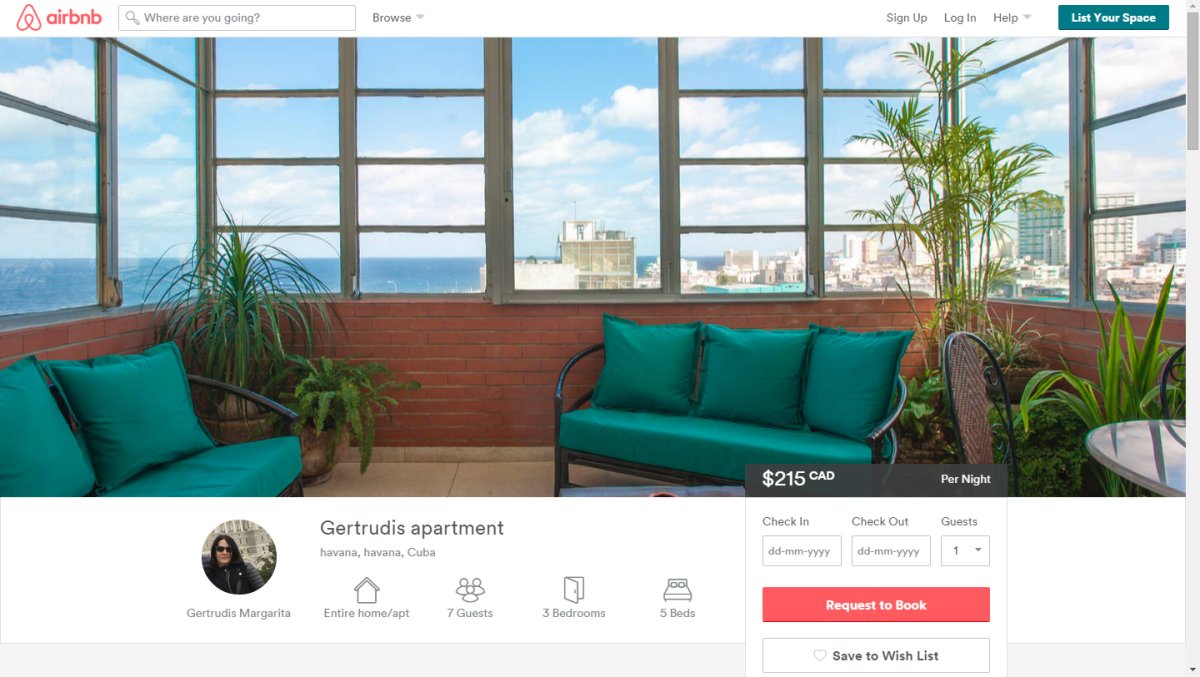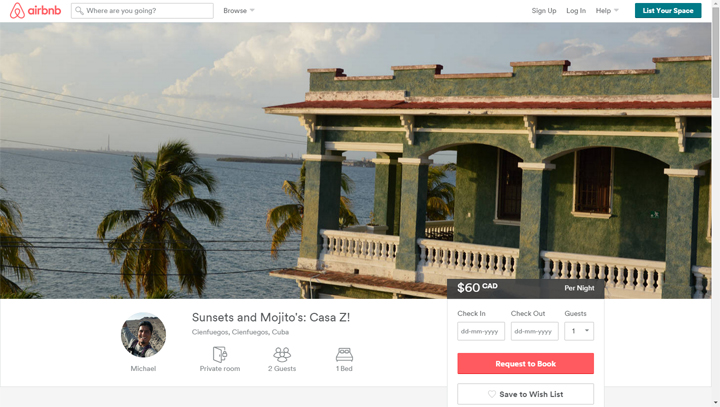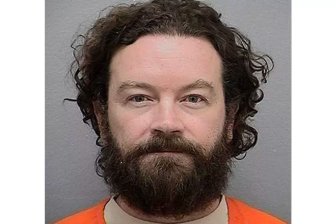TORONTO – American travellers may soon be waking up in Cuban households rather than the all-inclusive resorts so popular with Canadians.

But Canadians, for the time being, won’t be given that option.
Airbnb announced Thursday it is now listing Cuban casas particulares – traditional private homes run by local entrepreneurs – on its website. This isn’t new for the homeowners; they’ve been renting out their homes as bed and breakfasts since the mid-1990s. The industry has expanded since then ranging from small apartments in downtown Havana to large, luxurious beach houses.
“I think this is going to help our business prosper, to definitely improve, not just private business, but everything here,” said Israel Rivero, who charges $30 a night for a room in his central Havana apartment.
But right now, due to U.S. regulations prohibiting American companies from supporting non-U.S. travel to Cuba, the Airbnb service is only open to Americans. An Airbnb spokesperson tells Global News that the company is applying for a special license that would allow them to expand the service.
So Canadians will have to continue spending their vacations on all-inclusive resorts.

Get breaking National news
Kay Kuehne, the regional director for Airbnb, thinks Cuba could become one of the company’s largest markets due to the already developed network of bed and breakfasts.
“We are actually plugging into an existing culture of micro-enterprise in Cuba. The hosts in Cuba have been doing for decades what we just started doing seven years ago,” she said.
Around 40 per cent of Airbnb’s 1,000 listings in Cuba are in Havana and the photos available on the website show a glimpse of the colonial architecture and mid-20th century cars that the nation has become known for.
“I am Fatima and love my home-country,” she wrote on the Airbnb listing. “It’s really a special place to visit and has everything: beautiful beaches, Cuban cigars and salsa, impressing (sic) colonial buildings… You actually travel back into time!”
Cuba has been off-limits to most Americans for 50 years since the United States implemented a travel ban and has, since then, long been a favourite destination for Canadian travellers. Over a million Canadians travelled to Cuba in 2012, and spent nearly $748 million, according to Statistics Canada.
But President Barack Obama eased the ban in December opening the doors to licensed American travellers to visit. Netflix and Mastercard have also unblocked their services in Cuba.














Comments